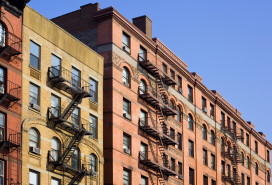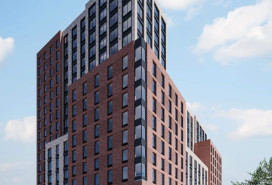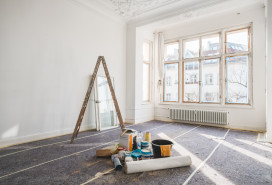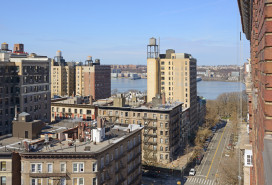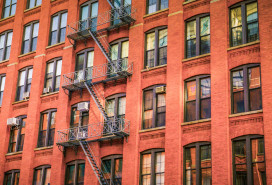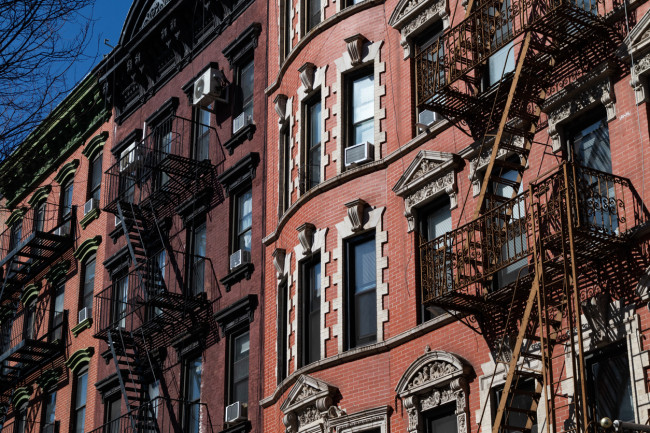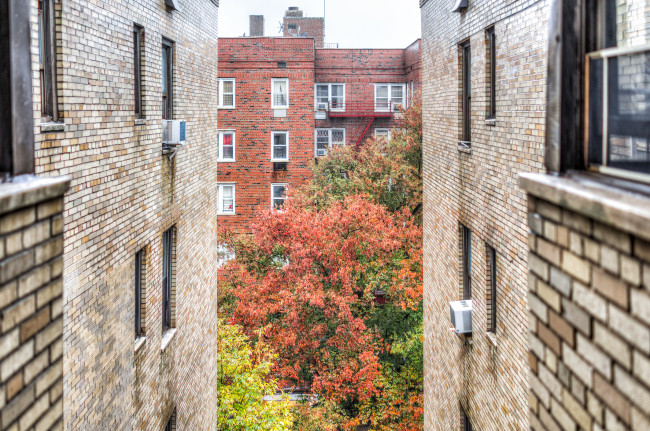NY raises cap on rent increases at newly renovated rent-stabilized buildings
- The change is part of several housing initiatives in New York’s newly passed budget
- The new policy has been criticized by both landlord groups and tenant advocates
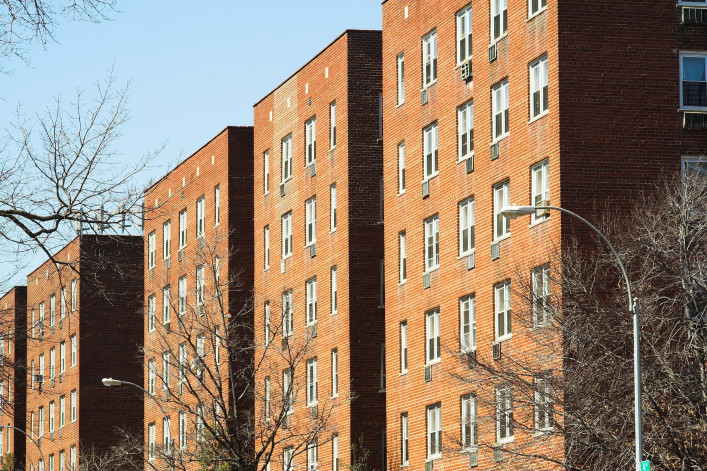
Neither tenant or landlord groups were particularly happy with the new policy governing Individual Apartment Improvement (IAI) allowances.
iStock
Rents at rent-stabilized apartments in New York City could rise under a new policy included in the recently passed state budget.
State legislators raised the cap on the amount a landlord can increase a rent-stabilized tenant’s rent in exchange for renovating the unit. But it’s unclear if landlords—who say the new limit still isn’t enough to pay for major repairs—will use the program.
The budget, which included a slate of housing-related measures including Good Cause eviction protections for market-rate tenants, was slammed by both landlord groups and tenant advocates. But Robert Riggs, senior vice president of Community Preservation Corporation, a nonprofit multifamily lender, was hopeful the new renovation policy would help owners update vacant, run-down apartments.
“Not everybody is happy with it, but it is much better than inaction,” Riggs said. “We've got a program that’s slightly more generous, has some nuance around long-term occupancy that should pick up units that need more significant work, and will result in more investment.”
Read on to learn how the new policy on Individual Apartment Improvements (or IAIs for short) could impact your rent-stabilized apartment.
How much can a landlord raise the rent?
In most cases, a landlord could raise the rent up to $167 per month for a rent-stabilized apartment in a building with more than 35 units, or up to $179 per month at a property with 35 or fewer apartments, according to the budget.
An owner is allowed to raise the rent in exchange for completing $30,000 worth of renovations at the apartment over 15 years, such as modernizing a kitchen, installing new bathroom fixtures, or adding new closets, according to the budget and the Division of Homes and Community Renewal (DHCR), which supervises rent-regulated apartments in New York.
Those rent increases are permanent. Previously, rent hikes were capped at $83 or $89 for $15,000 worth of improvements over 15 years, and those increases ended after 30 years.
Vacant apartments can see higher rent increases
Apartments that have been vacant since 2022, or became vacant after a tenant who lived there for at least 25 years moved out, could see higher rent increases.
If a landlord spends $50,000 on renovating one of those apartments, they can raise the rent by $320 in buildings with more than 35 units or $347 in buildings with 35 or fewer units. The higher cap is meant to target the units that need the most work, Riggs said.
“It’s intended as a proxy for unit condition, based on the assumption that the unit hasn’t seen significant renovations in the last 25 years while it’s been occupied,” Riggs said. “That’s not a perfect solution, but that’s a reasonable gate-keeping device to identify units that need more renovation.”
To qualify for the higher apartment increase, a landlord has to do the renovation when the unit is vacant, and needs to submit evidence that the unit was in “substandard” condition to prove the work was needed according to the budget.
An owner can’t impose that higher rent increase if they’ve previously harassed or overcharged tenants in the last five years, and the DHCR can audit and randomly inspect that renovation work, according to the budget.
What should tenants do?
If you’re a current tenant at a rent-stabilized apartment, your landlord can’t renovate your unit without your permission. It’s up to you to decide if the improvements are worth the rent increase and inconvenience of construction.
In the past, the vast majority of these renovations have happened when an apartment was vacant, said Ellen Davidson, a staff attorney at the Legal Aid Society.
If you move into a rent-stabilized apartment, you should request your rent history and keep an eye out for suspicious increases, said Cea Weaver, coalition director for the tenant organization Housing Justice for All.
“You should get your rent history,” Weaver said. “If you see large jumps in between the previous tenant’s legal regulated rent and what you're paying, that's a red flag and your landlord might be violating the IAI new rules.”
You can request your rent history by filling out nonprofit JustFix’s online form. If your landlord is charging you more than the legal rent, you should file a rent overcharge claim right away, Weaver said.
Both tenants and landlords criticize the new IAI policy
Neither tenants or landlords were particularly happy with the new policy. Davidson raised concerns that the rent increases for a $50,000 renovation could encourage owners to try to oust long-time residents in order to score the higher rent after renovating.
“We're very concerned that the higher amount, which is attached to people who have lived there 25 or more years, will put a target on the backs of those tenants,” Davidson said. “What we have seen is when the law incentivizes landlords to harass out long-term tenants, that harassment falls on older people and low-income people.”
At the same time, landlords have said the rent increases wouldn’t cover the thousands of dollars needed to upgrade some of these apartments, The Real Deal reported. (For context, the cost of renovating a New York City Housing Authority apartment ranged from $124,000 to $384,000 in 2023, The City reported).
Plus, the rules are just too complicated for small landlords to follow, said Jay Martin, executive director of the Community Housing Improvement Program, an NYC owner association.
“The increases to the cap will provide minor relief to a small number of buildings, but the changes in the process are fraught with legal traps that will deter most property owners from using it,” Martin said.



